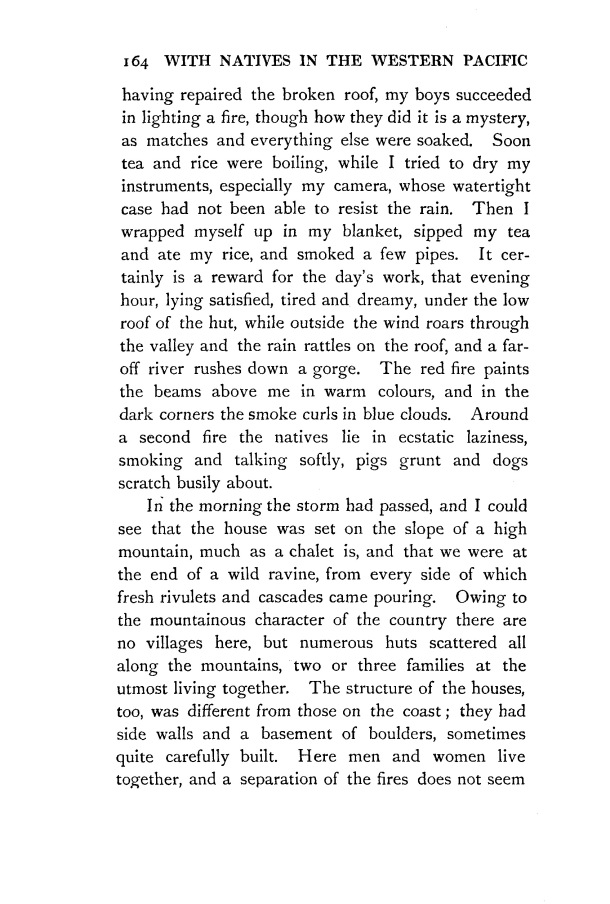|
|  [Note: this transcription was produced by an automatic OCR engine]
164 WITH NATIVES IN THE WESTERN PACIFIC
having repaired the broken roof, my boys succeeded
in lighting a fire, though how they did it is a mystery,
as matches and everything else were soaked. Soon
tea and rice were boiling, while I tried to dry my
instruments, especially my camera, whose watertight
case had not been able to resist the rain. Then I
wrapped myself up in my blanket, sipped my tea
and ate my rice, and smoked a few pipes. It cer-
tainly is a reward for the day’s work, that evening
hour, lying satisfied, tired and dreamy, under the low
roof of the hut, while outside the wind roars through
the valley and the rain rattles on the roof, and a far-
off river rushes down a gorge. The red fire paints
the beams above me in warm colours, and in the
dark corners the smoke curls in blue clouds. Around
a second fire the natives lie in ecstatic laziness,
smoking and talking softly, pigs grunt and dogs
scratch busily about.
In the morning the storm had passed, and I could
see that the house was set on the slope of a high
mountain, much as a chalet is, and that we were at
the end of a wild ravine, from every side of which
fresh rivulets and cascades came pouring. Owing to
the mountainous character of the country there are
no villages here, but numerous huts scattered all
along the mountains, two or three families at the
utmost living together. The structure of the houses,
too, was different from those on the coast; they had
side walls and a basement of boulders, sometimes
quite carefully built. Here men and women live
together, and a separation of the fires does not seem
|